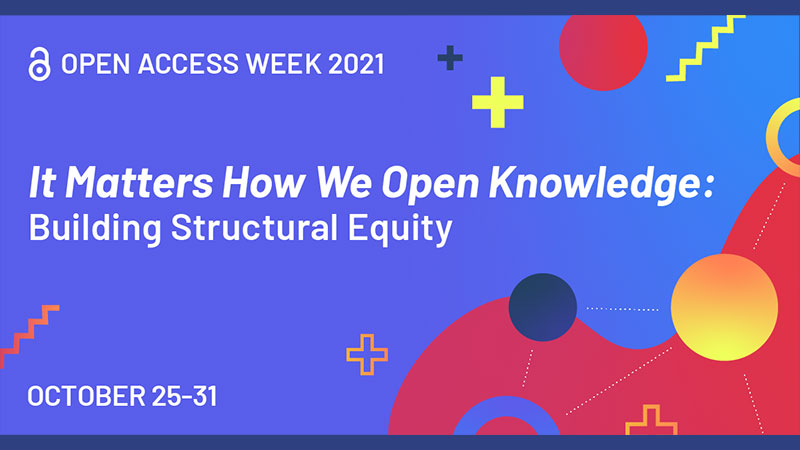October 13, 2021
As researchers, we all know the frustration of attempting to access a journal article only to find that it’s locked behind a paywall. International Open Access Week, October 25-31, 2021, is an annual recognition of the global effort to transform scholarly publishing and ensure that research articles are accessible to everyone—regardless of their ability to pay the high fees often required for scholarly journal access.
At NDSU Libraries, we support open access in a variety of ways:
- The NDSU Repository holds theses and dissertations, Extension publications, university records and archives, and much more.
- The repository also provides NDSU researchers with an opportunity to deposit a version of their accepted, published articles in a space where they can be accessed by anyone, free of cost. Most publishers allow for some version of accepted articles to be shared in a university-affiliated repository. To learn more, contact your department’s librarian.
- We support education and awareness of author’s rights, providing an informative guide and workshops each semester as part of the Graduate Researcher Series.
- We also provide information and assistance to encourage the continued adoption of Open Access publishing, and work to support Student Government initiatives around Open Educational Resources at NDSU.
Check out the following resources to take advantage of the opportunities open access provides:
- Unpaywall is an extension for the Chrome browser that will easily connect you to open versions of paywalled articles, if available.
- The Open Access Button is a web-based search tool for locating open versions of published articles. A browser extension is also available.
- The Open Research Library is an online portal that is eventually planned to include all open access book/monograph content worldwide.
- Discover disciplinary repositories available for your subject.
- Learn about SPARC’s author addendum, and how it can protect your rights to your research output.
For more resources, and to learn more about open access, visit SPARC.

